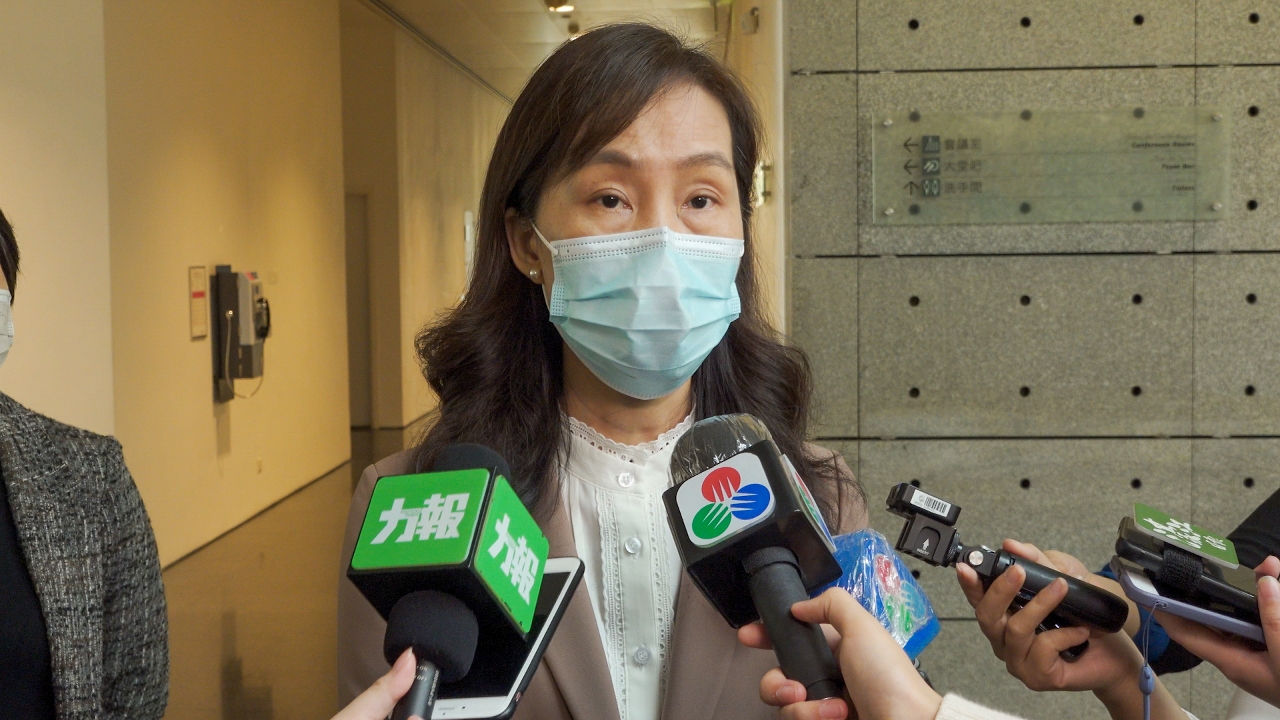 The Secretary for Social Affairs and Culture, Ms Ao Ieong U, speaks to reporters.
The Secretary for Social Affairs and Culture, Ms Ao Ieong U, speaks to reporters.
The Secretary for Social Affairs and Culture, Ms Ao Ieong U, today said the Macao Special Administrative Region (MSAR) Government had stepped up its effort to promote COVID-19 vaccination for children and elderly people.
Speaking on the sidelines of a meeting of the Cultural Development Consultative Committee, Ms Ao Ieong said the Education and Youth Development Bureau, along with the Health Bureau, had held a number of seminars in schools, in order to explain to children the advantages of getting vaccinated. Around 20,000 parents of children ranging in age from 3 to 11 had expressed their intention to have them vaccinated, she said.
Regarding vaccination for the elderly, Ms Ao Ieong said the Social Welfare Bureau had coordinated the effort of some 200 social services institutions, whereby they were contacting elderly people to promote to them the importance of getting vaccinated. Some 10,000 elderly people had been approached on Wednesday (2 March), she added.
The Health Bureau would work to encourage large enterprises to introduce measures conducive to their employees getting vaccinated, said Ms Ao Ieong.
In addition, people who had been allowed to leave the Pousada Marina Infante hotel during the period 20 February to 1 March, after undergoing their respective medical observation there, had been asked to undergo an additional nucleic acid test, in view of the difficulties related to detection of the virus via testing. All those tests had produced a ‘negative’ result for COVID-19 infection, said Ms Ao Ieong.
The Secretary stated the MSAR Government had been closely monitoring the latest developments related to the pandemic. The Government would adjust its current anti-epidemic measures if findings showed the virus’ incubation period was longer than 14 days, she added.
On 1 March, a sample of the wrapping film of the external packaging of a batch of refrigerated milk originating in, and imported from, Hong Kong tested ‘positive’ for COVID-19 during the routine inspection and testing stage applied by the Municipal Affairs Bureau to imported food products.
Ms Ao Ieong said a number of public departments had reviewed existing anti-epidemic measures for the cold chain industry, including how to strengthen epidemic-control protocols when handling imports from areas either of high- or medium-risk for COVID-19 transmission. Noting the proximity between Macao and Hong Kong, and the short time required to transport goods between the two places, Ms Ao Ieong pointed out the necessity of reviewing existing disinfection procedures for foods handled by the cold-chain system, and the anti-epidemic measures required for those involved in the cold-chain industry, in order to ensure the safety of the Macao public, said Ms Ao Ieong.
Such review included work related to the Municipal Affairs Bureau, the Health Bureau, the Macao Customs Service, the Marine and Water Bureau, and the Economic and Technological Development Bureau.


